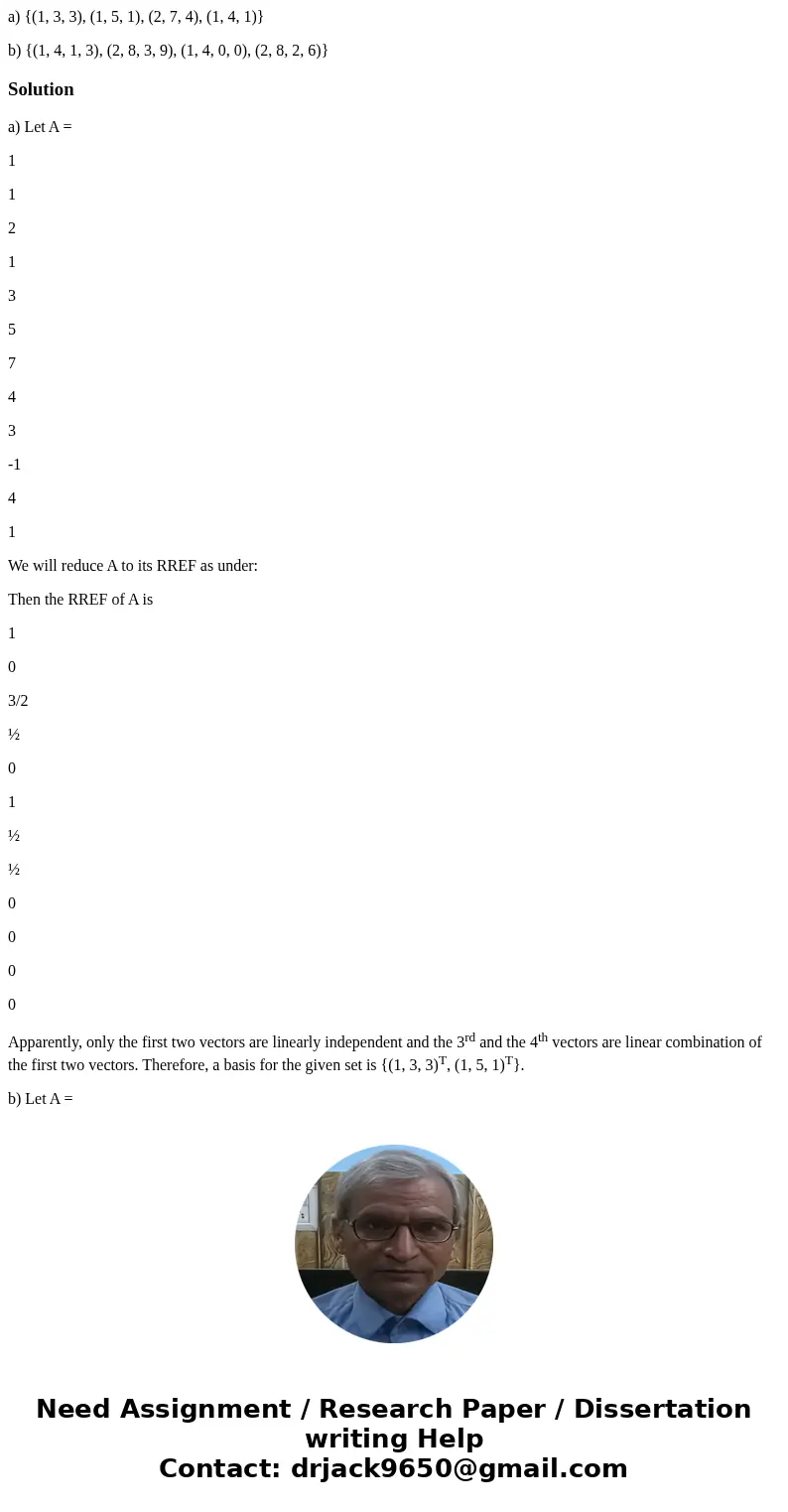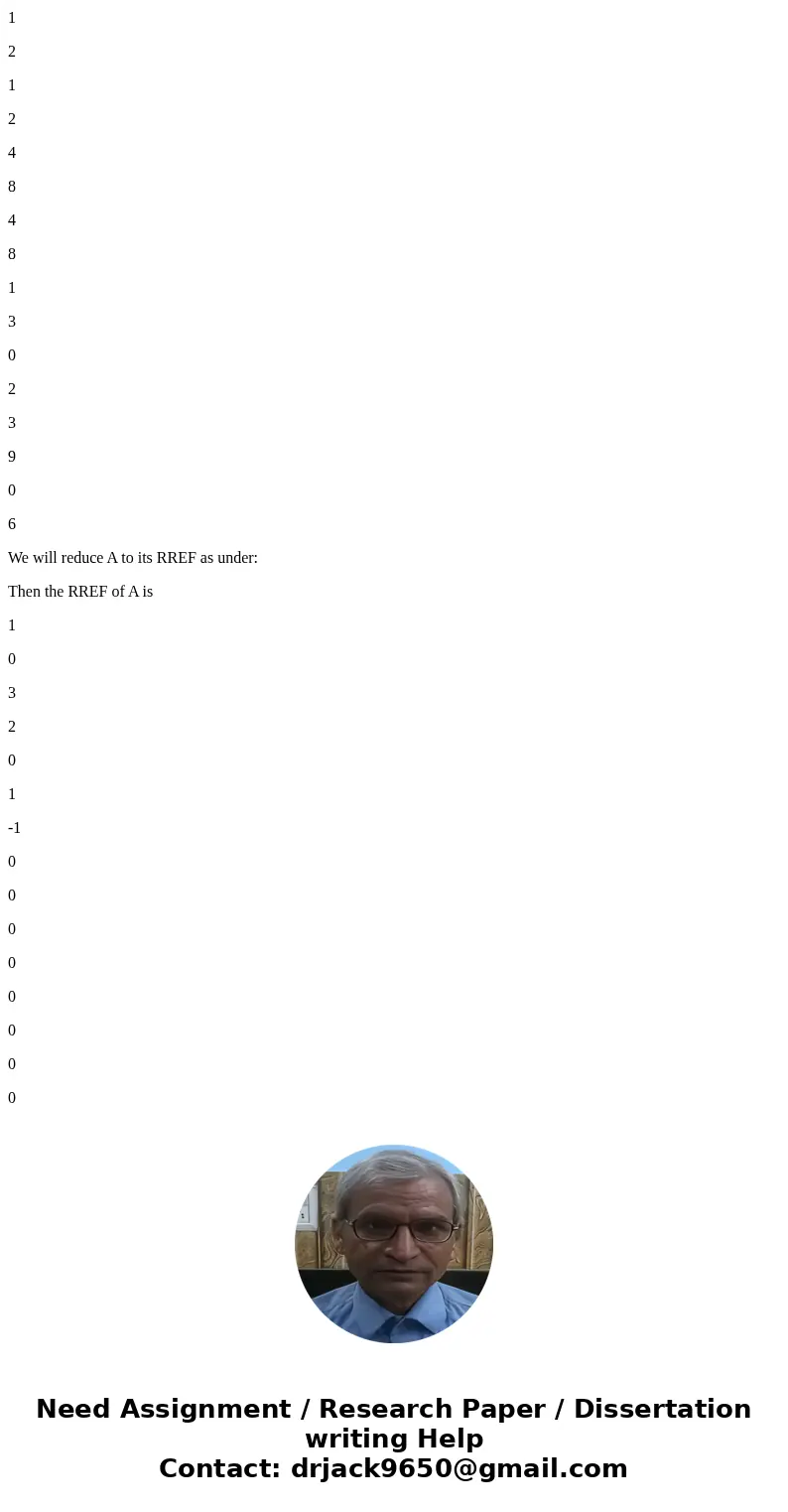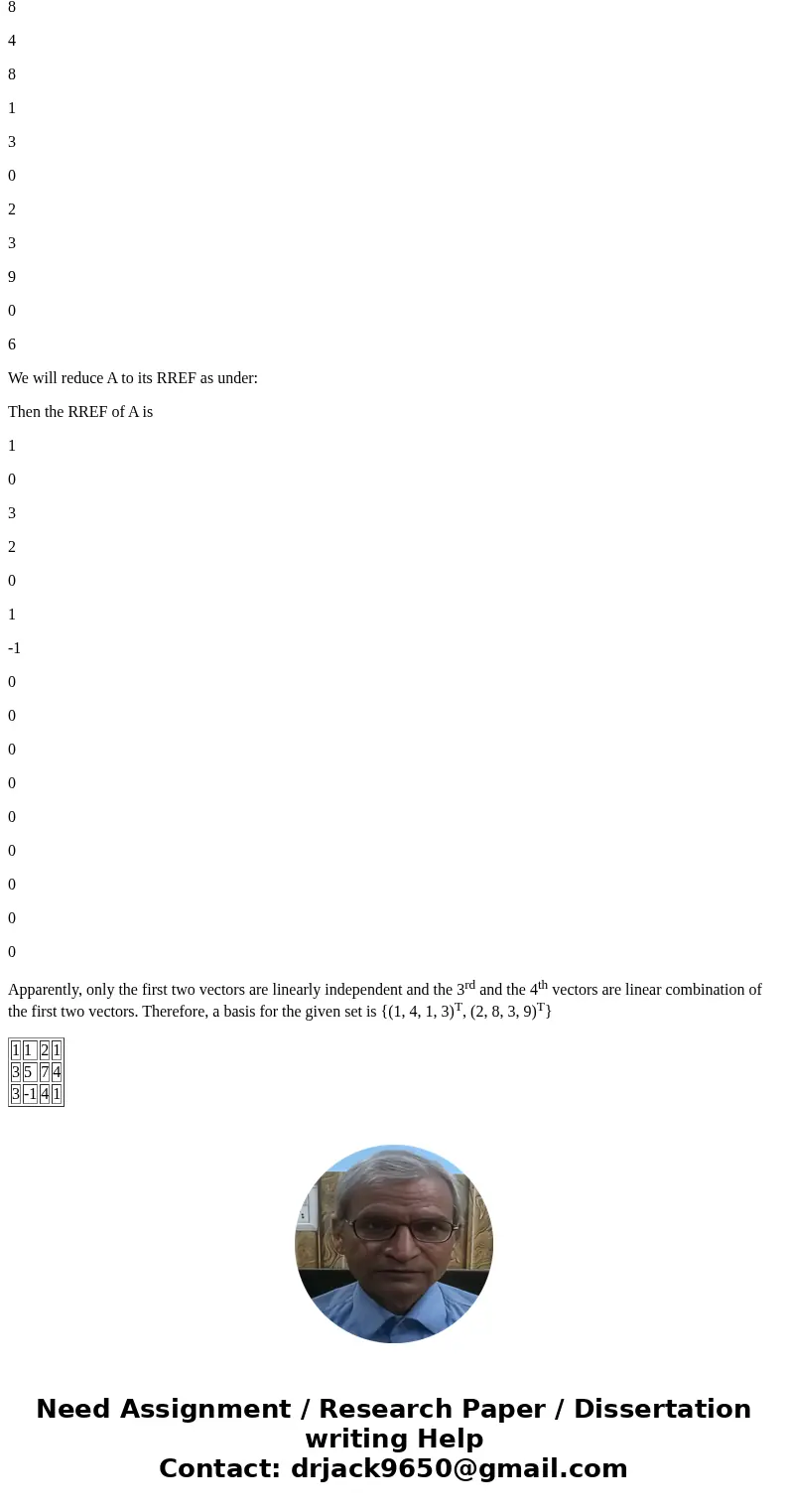a 1 3 3 1 5 1 2 7 4 1 4 1 b 1 4 1 3 2 8 3 9 1 4 0 0 2 8 2 6S
a) {(1, 3, 3), (1, 5, 1), (2, 7, 4), (1, 4, 1)}
b) {(1, 4, 1, 3), (2, 8, 3, 9), (1, 4, 0, 0), (2, 8, 2, 6)}
Solution
a) Let A =
1
1
2
1
3
5
7
4
3
-1
4
1
We will reduce A to its RREF as under:
Then the RREF of A is
1
0
3/2
½
0
1
½
½
0
0
0
0
Apparently, only the first two vectors are linearly independent and the 3rd and the 4th vectors are linear combination of the first two vectors. Therefore, a basis for the given set is {(1, 3, 3)T, (1, 5, 1)T}.
b) Let A =
1
2
1
2
4
8
4
8
1
3
0
2
3
9
0
6
We will reduce A to its RREF as under:
Then the RREF of A is
1
0
3
2
0
1
-1
0
0
0
0
0
0
0
0
0
Apparently, only the first two vectors are linearly independent and the 3rd and the 4th vectors are linear combination of the first two vectors. Therefore, a basis for the given set is {(1, 4, 1, 3)T, (2, 8, 3, 9)T}
| 1 | 1 | 2 | 1 |
| 3 | 5 | 7 | 4 |
| 3 | -1 | 4 | 1 |



 Homework Sourse
Homework Sourse